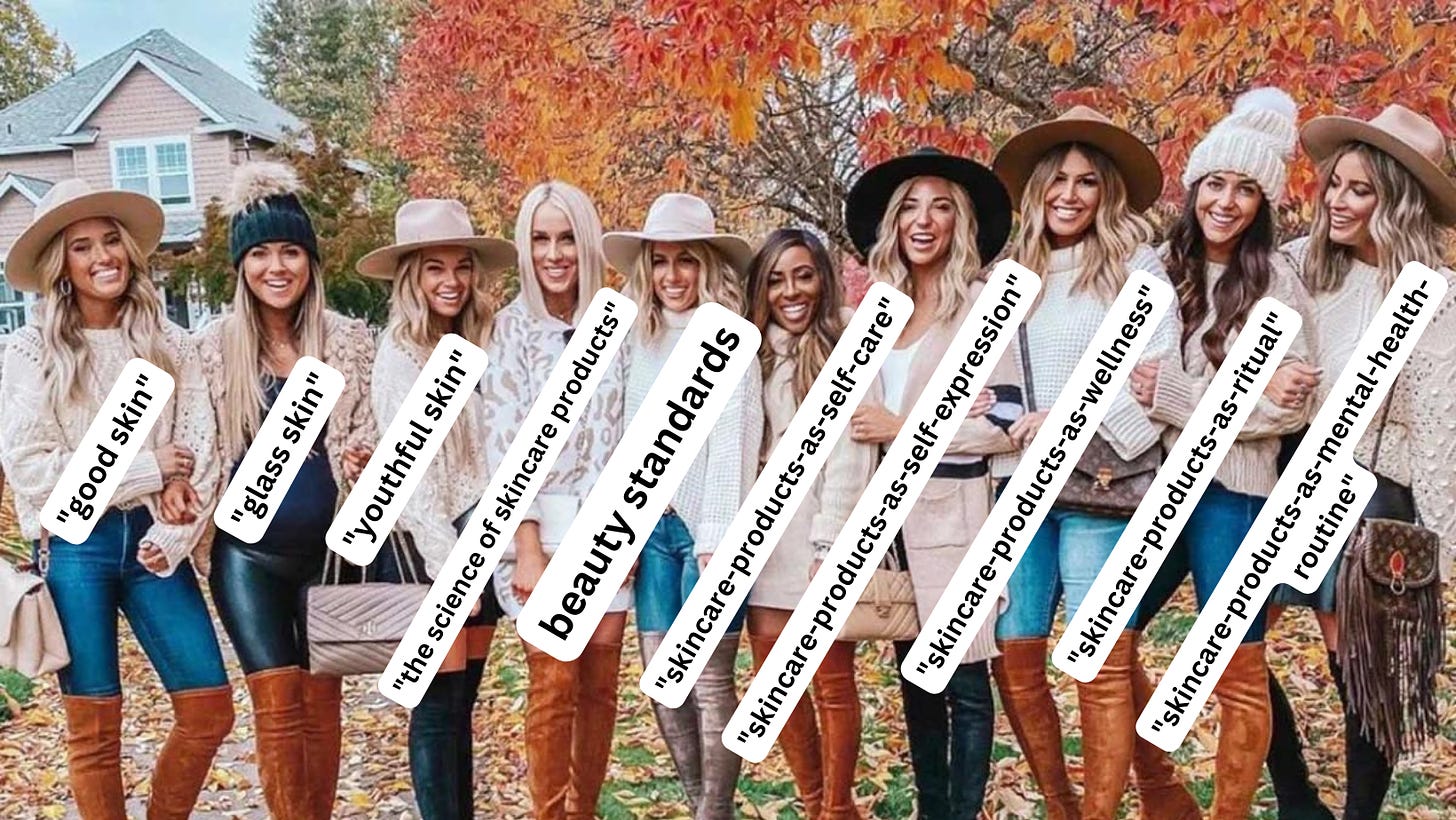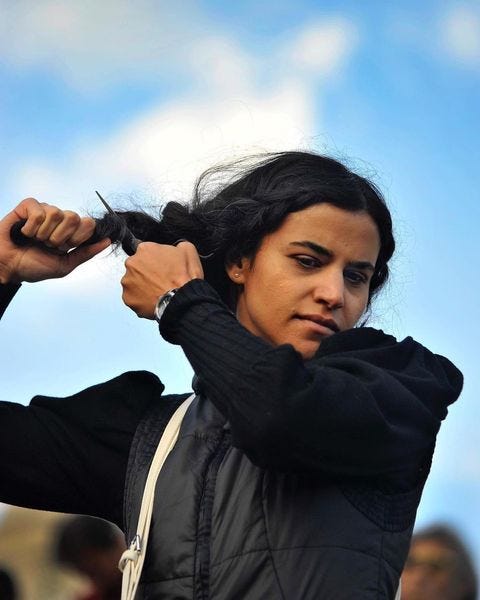The Beauty Industry Is Using The Iranian Protests To Promote Haircare Products
The Don't Buy List: Issue #37
Hello, dewy dust bunnies, and welcome to another edition of the The Don’t Buy List! It’s officially autumn: the leaves are falling, the air is cooling, and soon — according to an email I recently received from a skincare company’s publicist — “your skin will need to battle the changing seasons.”
I wish this went without saying, but apparently it does not: The language of war — fighting fine lines! banishing dead skin cells! battling blemishes! — is completely incompatible with the concept of care. If a beauty brand is encouraging you to engage your face or body in LITERAL COMBAT, it is not selling you skincare!! It is selling you (a false sense of) control. It is selling you a beauty standard.
Anyway!
Iranian women are cutting their hair to protest the death of Mahsa Amini and the beauty industry is being really fucking weird about it.
Amini was arrested by Iran’s “morality police” — and died three days later — for allegedly breaking the country’s rules on hijab wear. Here is CNN’s (correct) take:
For many Iranian women, cutting off hair – a sign of beauty that is decreed to be hidden in the Islamic Republic – is a poignant form of protest.
“We want to show them that we don’t care about their standards, their definition of beauty or what they think that we should look like,” said 36-year-old Faezeh Afshan, an Iranian chemical engineer living in Bologna, Italy, who was filmed shaving off her hair. “It is to show that we are angry.”
And here is a beauty publication’s (batshit) take:
The scenes of women in Iran cutting their hair … demonstrate the power of hair in a way that belies the accusations of superficiality thrown at women who care about it.
The nine trends we identify below are vivid examples of [brands] burrowing into emerging niches, adapting to market conditions and experimenting to bolster their businesses.
It should be extremely upsetting to watch the beauty media co-opt a moment of radical political protest to promote a company that sells fake eyelashes from a vending machine and the oxymoronic rise of “no-haircare haircare”. (Yes, that’s what this particular article covers.) It should also be extremely illuminating, because it shows how much the (maybe well-meaning) beauty media does not get it. Iranian women are protesting patriarchal beauty norms in order to call attention to the many other ways that patriarchal governments are censoring, controlling, and killing women because these things are intertwined. If you want to turn this into a story about the “power of hair,” at least be honest about where that power lies: in opting out of cultural beauty standards, not buying into them. As it is, mentions of the Iranian protests and “the power of hair” don’t belong anywhere near this consumerist turd of a trend report.
Brad Pitt launched a “genderless” skincare line called Le Domaine. I’ve seen a lot of eye-rolling coverage of this obscenely expensive addition to the celebrity beauty brand space, but all of it misses the point. My theory? Pitt is attempting to soften his public image by distancing himself from traditional masculinity (launching “non-binary” beauty products) and adopting typically “feminine” interests (skirts, skincare, Goop) following allegations that he abused ex-wife Angelina Jolie and their children. And it’s working! Almost no one is talking about the FBI documents that detail a drunken, violent outburst against his family — including shaking Jolie, choking his kid, and pouring beer over both of them. Almost everyone is talking about his $310 “Fluid Cream.”
Megababe founder Katie Sturino took to Instagram to brag about using Megababe’s “butt mask” on her face.





